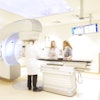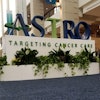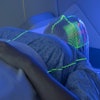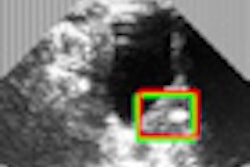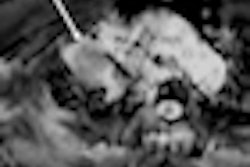MIAMI BEACH, Fla. - The 20th century was a golden age for radiation oncologists. The 21st century promises to be a different era entirely as practitioners are forced to confront rising concerns over radiation safety. That's what attendees heard on the first day of the American Society for Radiation Oncology (ASTRO) annual meeting.
ASTRO attendees got a healthy dose of reality from ASTRO's chairman, Dr. Anthony Zietman, a radiation oncologist at Massachusetts General Hospital and professor at Harvard Medical School, as well as Gregory Jaczko, PhD, chairman of the U.S. Nuclear Regulatory Commission (NRC), the primary federal agency charged with regulating many of the technologies used in radiation therapy.
Both speakers told ASTRO attendees that while the culture of radiation therapy may be changing, ASTRO and NRC aren't interested in creating a punitive environment for radiation oncologists. Instead, they hope to work with practitioners to create a culture of safety that will benefit both patients and providers.
A changing era
In the 20th century, once radiation oncologists completed their residency, they could practice their specialty untrammeled. Regulators, payors, and the government left them alone. They were respected by physicians and patients, and they were gifted with technological innovations that revolutionized the specialty and dramatically improved patient outcomes, Zietman said.
The 21st century is a new age of transparency and accountability. It's a time of increasingly complex treatments -- propelled by ever-changing technology -- that are creating new potential hazards for working with radiation. It can no longer be presumed that radiation oncologists are thoroughly knowledgeable about treatments for cancer, and that a radiation oncology department will always practice safe medicine, he continued.
Radiation oncology's aura of patient safety was shattered in 2009 by a series of articles by reporter Walt Bogdanich from the New York Times. Revelations of treatment errors in the Philadelphia Veterans Affairs Medical Center's (VAMC) prostate cancer brachytherapy program shocked the U.S., as did other reports of medical errors that followed. The revelations awakened government agencies and jolted ASTRO to take stronger action to maintain patient safety.
But part of the challenge of radiation therapy, in particular, is the lack of evidence-based guidelines for best-practice radiation safety procedures.
"Safe decision-making is a tricky thing, especially when there is insufficient evidence," Zietman said. Another complicating factor is the variance in cancer treatments throughout North America and, in fact, the world.
The development of evidence-based guidelines is being fueled by electronic data collection entered into registries. The ability to acquire, manage, and analyze data electronically to publicize outcomes will make it possible to identify and share best practices, and to make changes in recommended treatment as needed. ASTRO's project to establish a national radiation oncology registry began a year ago and is well under way.
The ability to compare patient outcomes with those of peers by participating in registries can help identify high levels of competence -- as well as incompetence. It helps establish goals to improve a practice, and everyone's practice can improve.
ASTRO has been working hard since the New York Times revelations to establish a culture of safety. It is promoting accreditation among its members and is running an education program focused on safety. The society's work in developing the Integrating the Healthcare Enterprise - Radiation Oncology (IHE-RO) profile has merited the attention of the U.S. Food and Drug Administration (FDA), Zietman said.
Guardian of safety
Over the past 10 years, ASTRO has morphed from a professional organization focused exclusively on its members to a guardian of patient safety. And with that pronouncement, Zietman introduced Jaczko, who told ASTRO members that the NRC has common cause with the society.
"With respect to overseeing the use of nuclear material for clinical applications, the goal of the NRC is the same as radiation oncologists: to protect patients receiving radiation therapy treatments and the caregivers who administer [them]," Jaczko said. The challenge NRC has as a regulatory agency is to maintain responsibility for appropriate use of radiation, but without impeding medical progress.
He pointed out that within the U.S., one-third of all patients receive some kind of a diagnostic imaging examination. Thirty years ago, approximately 15% of all exposure to radiation was attributed to a medical procedure, but today, almost half is.
From Jaczko's perspective, the problems of the Philadelphia VAMC prostate brachytherapy program reflected a major breakdown in which many different medical professionals contributed to 97 adverse events affecting patients. "I don't believe that these types of problems are widespread, but they do occur," he said.
For this reason, NRC has the job of ensuring safe use of radiation in medicine. Unlike power plants, which are limited in number, for medical radiation, NRC has established a framework of oversight with a foundation of voluntary reporting. While nuclear power plants are inspected regularly, NRC regulators rarely visit medical facilities, in great part because it simply is not feasible.
"Our approach gives you the space to practice medicine," he said. "We are not interested in how you practice medicine. Our primary focus is ensuring that medical professionals are properly trained to know how to use radiation safely, in accordance with the NRC's rules and regulations."
"When you report a medical event, it is your responsibility to explain what happened, if and how a patient was affected, and what you are going to do to prevent this incident from happening again," he said. "We are not interested in knowing what radiation dose you prescribed and if it was within recommended guidelines, but rather if the total dose differed by 20% or more from what you prescribed when it was administered to a patient."
A report on a medical event does not automatically equate to a violation of NRC requirements. A violation occurs when NRC sends a letter to the practitioner. NRC is currently updating some of its definitions, but there will always be the requirement to report a medical event. Language is also being modified for rules related to a trained user of radiation attesting to the ability of another individual. Current language is of concern to potential attesters -- namely, that they could become personally liable for another individual's actions.
Jaczko ended his remarks by saying that ASTRO's collaboration with NRC in working on these initiatives was a winning situation for all concerned. He made a point of dispelling perceptions that NRC and ASTRO were adversaries.
"We've got the same goal and we are working together to achieve it: to have a universal culture of safety in every medical facility where radiotherapy treatments are administered," Jaczko concluded.
